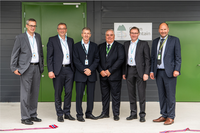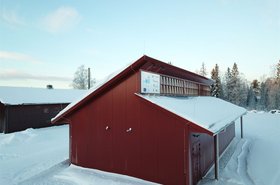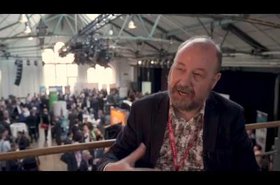Volkswagen has taken two new data halls in Green Mountain's facility in Rjukan, Norway, revealing itself to be the customer behind the expansion which was announced in November 2018.
The two halls, totalling 2.75MW, will be used for high-performance computing applications such as wind tunnel and crash test simulations. The Green Mountain facility, known as DC2-Telemark, is climate-neutral, using hydro-electric power from Norway's grid.
Remote HPC
Volkswagen Group already has some HPC capacity in a Nordic data center powered by renewable energy: it took 1MW of capacity in Verne Global's facility in Iceland in 2016, and this has apparently expanded to reach a similar size to the new Norwegian site.
The fresh Green Mountain halls were announced in late 2018, and have been built in less than six months, using pre-fabricated modules, and opened on April 1. They will be used by both the Volkswagen Passenger Cars and Audi brands for vehicle development projects, including simulations of crash tests and virtual wind tunnel tests.
These calculations are not time critical or latency-sensitive, but are very complex and energy intensive, so it makes sense to carry them out in remote locations where they can take advantage of local conditions and economics which make the processing more cost effective, said the release: "Outsourcing them to external data centers hugely relieves the IT infrastructure at domestic locations."
"We support digitalization in all areas of the Volkswagen Group," said Mario Müller, head of IT integration and services at the Volkswagen Group. With new technologies and digital forms of cooperation, there is a growing need for computing power in the company. As a result, we are constantly expanding our capacities."
As well as Norway's renewable power, the site has Europe's lowest energy prices, says Green Mountain, adding that the contract also benefits form the Norwegian government's data center strategy, which provides a "beneficial framework" supporting data center investment.
The Norwegian government believes that every 1MW of capacity in a data center will create 20 jobs. "Data has become a key resource for the development of business and society, and the need for data centers will only increase," said the Norwegian Minister of Trade and Industry, Torbjørn Røe Isaksen. "Norway needs new industries that create jobs and boost economic growth."
Saving CO2
To build in the short time span, Green Mountain worked with its existing partner on other sites, Schneider Electric, using a prefabricated modular infrastructure. It also used the EcoStruxure management product for IoT-based infrastructure monitoring and control.
Volkswagen believes the new site will save 5,800 tons of CO2 per year compared to a data center powered by fossil fuels.
"Locations in the Nordic countries of Europe qualify due to their good availability of more favorable, environmentally friendly energy and weather conditions, which can be used for efficient cooling of the facilities," said the Volkswagen release. "The Volkswagen Group already operates a carbon neutral data center in Iceland (Reykjanesbær). It is about the same size as its Norwegian pendant, saving more than 6,200 tons of CO2 per year."
Volkswagen also has data centers inside its national and international sites, used for business-critical applications, for production, logistics or sales. These data centers are also built for efficiency, the company says, using indirect free cooling, adjustments to the cold water inlet temperatures and energy-saving operating systems.




